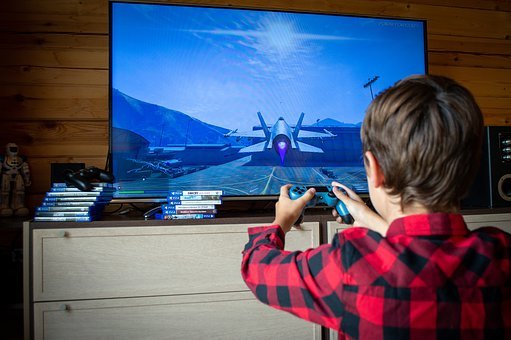Search
[{{{type}}}] {{{reason}}}
{{/data.error.root_cause}}{{{_source.title}}} {{#_source.showPrice}} {{{_source.displayPrice}}} {{/_source.showPrice}}
{{#_source.showLink}} {{/_source.showLink}} {{#_source.showDate}}{{{_source.displayDate}}}
{{/_source.showDate}}{{{_source.description}}}
{{#_source.additionalInfo}}{{#_source.additionalFields}} {{#title}} {{{label}}}: {{{title}}} {{/title}} {{/_source.additionalFields}}
{{/_source.additionalInfo}}Why Gaming Could Be the Key to Smarter Learning
Gaming and education might seem like an unlikely pairing, but as more educators learn, there's a good reason behind it. Here are eight examples of how video games could change how we learn, making education more fun and better at teaching students important skills.
1. Enhanced EngagementThis is where video games often come into their own: generally, you cannot leave the game until you finish a certain project or level. Anyone who has attended a school or university lecture will know that, for whatever reason, not all pupils are congenitally capable of attending to the task put to them; some will be distracted or bored, some will be clueless, and some will just not be prepared to give it their all. Games, on the other hand, can be highly engaging. They are fun, challenging, and provide immediate rewards. They can track students to concentrate on the task at hand and see it through.
2. Active LearningThe modern learning environment is quite dynamic. In contrast to passively listening to a lecture, players are constantly making decisions, engaging in exploration and experimentation as they move through the game, literally 'playing' with the possibilities; that is, they are practicing critical thinking and problem-solving skills inherent in the process of learning, as they confront and attempt to solve various scenarios within the game. This is comparable to more challenging types of problems they will likely encounter in the real world outside the classroom. Say they need to write a dissertation. Where some will use the best dissertation writing service, gamers will see it as a challenge and consider how they may approach it to succeed. They are generally not afraid of "grind," as that is what is often needed to pass the hard level.
3. Collaborative LearningMany games allow multiple players to work together in order to accomplish their goals. This feature of gaming can be leveraged to teach students teamwork and communication skills. Collaborative learning through gaming creates a sense of community and shared responsibility, two key values that are important both in academia and in our professional lives.
4. Simulation and Real-World SkillsGames can recreate environments that are as complicated as the real world but still offer students experimenting grounds under controlled circumstances. A business management game, for example, lets students try out ideas, economic concepts, and business strategies and test them in a safe environment where the cost of failure is reduced. This helps learners see each challenge as an opportunity to learn something and have fun without the often crippling fear of failure, as gamers know that if you fail, you can always try again.
5. Customizable Learning ExperiencesThe educational speed and modality can be adapted to the learning environment of each player. Adaptive technology is now so advanced that it can make a game increasingly difficult as players master their skill level. Through adaptive technology, each player can receive a customized curriculum that is constantly and appropriately pushed to keep the learner engaged without plummeting into frustration. Slow and fast learners can both benefit from this approach.
6. Reducing AnxietyAnxiety over performance and assessment can be reduced in a game environment that is less threatening than traditional testing, which can make learning and assessment more appealing and less stressful. Here's how gaming can help reduce anxiety:
- Distraction. Engaging in games can divert attention from stressors to immersive activities that are enjoyable and captivating.
- Achievement and Rewards. Completing game objectives and earning rewards can boost self-esteem and mood.
- Social Connectionю Multiplayer games provide social interaction and support, which can alleviate feelings of loneliness and anxiety.
- Stress Relief. Gaming's fun and excitement can act as a release mechanism, helping to manage and reduce stress levels.
- Control. Gaming allows players to experience control in virtual environments, which can be empowering for those who feel they lack control in other areas of their lives.
Persistence is a natural byproduct of games: they encourage players to keep trying. This is partly because they are designed to be challenging and partly because games teach players that failing is not a bad thing but an inherent part of the learning process. This is a useful life skill that equips students to persevere in their studies; even in the face of failure, games teach players that they can continue.
Level Up Your LearningWhen we consider the role of gaming in the context of education, this isn't about playing instead of learning but about how we can alter our approach to learning to make it more impactful, engaging, and inclusive. As the incredible potential of educational technologies continues to unfold, gaming has the power to transform didactic, pedagogical, and increasingly elusive educational paradigms into a playful, active experience that prepares students not only for the rigors of school but for the challenges of life.
When you subscribe to the blog, we will send you an e-mail when there are new updates on the site so you wouldn't miss them.








Comments